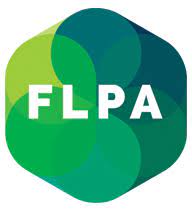The Duty of Disclosure in Family Law: What You Need to Know
In family law disputes, the principle of full and frank disclosure is fundamental to ensuring that both the court and the opposing party have a clear picture of the relevant facts. Disclosure obligations require that each party provide all documents and information that relate to the issues in the case, whether it be a financial matter or parenting dispute. The importance of this duty is underscored by strict penalties for non-compliance, as failure to disclose can significantly distort the outcome of the case.
When Does the Duty to Disclose Start and End?
The duty to disclose begins at the pre-action procedures stage, even before the court proceedings formally start. This pre-action requirement ensures that both parties attempt to resolve disputes with all the relevant information at hand, in line with the Family Law Rules. The duty continues throughout the entirety of the case until the matter is settled or the court issues final orders. Crucially, this obligation is ongoing, meaning that parties must disclose new or updated information as it becomes available.
One misconception is that the duty ceases once the initial disclosure is made. This is incorrect—failing to provide updated disclosures when circumstances change, or when new documents are found, is a breach of the duty and may result in penalties.
Full and Frank Disclosure in Financial Matters
In financial disputes, full and frank disclosure is a central requirement. Under Rule 13.04 of the Family Law Rules 2004, each party must disclose their complete financial circumstances. This includes:
- All sources of income: Whether from employment, Centrelink payments, child support, trusts, or business interests.
- Assets: This includes property (real estate), vehicles, shares, investments, and personal property such as jewellery and artwork.
- Liabilities: These include mortgages, personal loans, credit card debt, and other financial obligations.
- Financial resources: Trust interests, business interests, and any expected entitlements, such as inheritances.
Cases Involving Non-Disclosure in Financial Matters
Weir v Weir [1993] FamCA 100 is a pivotal case in understanding the severe consequences of failing to provide full disclosure. In this case, the husband concealed a significant overseas bank account. When the court discovered the non-disclosure, it reopened the case and made new orders, penalising the husband by awarding the wife a larger portion of the property pool. This case serves as a strong warning to parties considering withholding information—non-disclosure can lead to adverse findings, including costs orders and a potential reversal of property settlements.
Similarly, Black & Black [2008] FamCAFC 7 involved a husband who failed to disclose business interests. The court held that the omission was deliberate and reallocated the assets, resulting in the wife receiving a more favourable settlement. Black & Black highlights that attempts to defeat claims through non-disclosure will not only fail but may lead to more severe financial outcomes for the party in breach.
Disposal of Property
A common issue in financial disputes is the disposal of property prior to or after separation. Under the Family Law Act, parties are required to disclose all information related to the sale, transfer, or gifting of property if:
- The disposal occurred within the year before separation.
- The disposal happened after separation but might affect or defeat a claim.
Failing to disclose such transactions can lead to the setting aside of financial agreements or orders. For example, if a party sold a property or transferred assets to a family member to reduce the asset pool, the court has the power to reverse those transactions and include the asset in the property division.
Disclosure in Parenting Matters
In parenting disputes, the duty of disclosure extends to documents and information that could influence the court’s decision regarding the child’s best interests. Under Rule 13.07 of the Family Law Rules, parties must disclose all relevant documents. These include:
- Medical reports: Any medical records concerning the child’s physical or mental health.
- School reports: Information about the child’s educational progress.
- Psychological assessments: Reports from therapists or counsellors regarding the child’s emotional wellbeing.
- Correspondence: Letters or drawings made by the child that may offer insights into their wishes or experiences.
- Parenting journals, photographs, or notes: Any records kept by the parents regarding the child’s daily routine, behaviour, or significant events.
A failure to provide such disclosure may result in the court drawing adverse inferences against the non-compliant party. In Fitzgerald & Fitzgerald [2011] FamCAFC 36, the mother’s refusal to disclose relevant documents related to the children’s health led the court to question her credibility. The court adjusted its parenting orders in favour of the father, underscoring the necessity of transparency in parenting cases.
Compliance with Your Duty of Disclosure
There are several ways in which you may be required to comply with your duty of disclosure, including:
- Production of documents: Providing original or copies of relevant documents for inspection.
- Inspection of documents: Allowing the other party to review documents in your possession.
- Copying of documents: Providing the opposing party with copies of relevant documents.
- List of documents: Offering a comprehensive list of all documents that you possess or control, relevant to the case.
- Answering specific questions: Responding to formal requests for information about documents or details relevant to the case.
It’s important to note that disclosure must be prompt, comprehensive, and ongoing. Failure to comply can lead to serious consequences.
Undertakings and the Duty of Disclosure
As part of family law proceedings, each party is required to provide an undertaking to the court, affirming their understanding of the duty of disclosure. This means you acknowledge your obligation to provide full and frank disclosure and confirm that you will continue to do so throughout the case. By signing this undertaking, you also acknowledge that:
- To the best of your knowledge, you have complied with your disclosure obligations.
- Breaching this undertaking may lead to a contempt of court charge, which could result in fines, imprisonment, or other serious penalties.
Consequences of Failing to Comply with the Duty of Disclosure
Non-compliance with the duty of disclosure can have severe ramifications. The Family Court has the power to impose penalties, which may include:
- Exclusion of evidence: The court may refuse to allow undisclosed documents to be used as evidence.
- Dismissal of the case: The court may dismiss all or part of the case if disclosure obligations are not met.
- Costs orders: The non-compliant party may be ordered to pay the legal costs of the other party.
- Fines or imprisonment: If a party is found guilty of contempt of court for breaching disclosure duties, they may face fines or imprisonment.
The penalties highlight the seriousness of the disclosure requirements. In Black v Kellner [2017] FamCA 474, the husband’s failure to disclose documents led the court to penalise him with significant costs, reinforcing the court’s strict approach to ensuring fairness through transparency.
Conclusion
The duty of disclosure is a fundamental part of any family law proceeding in Australia. Whether dealing with financial or parenting matters, it is crucial for all parties to fully and promptly disclose all relevant information. Failing to meet this obligation can result in significant penalties, from costs orders to imprisonment. By providing full and frank disclosure, parties ensure that the court can make informed decisions, leading to a fair and just outcome for all involved. Ensuring transparency throughout the process not only helps achieve a just division of property but also protects the welfare of children in parenting disputes.






